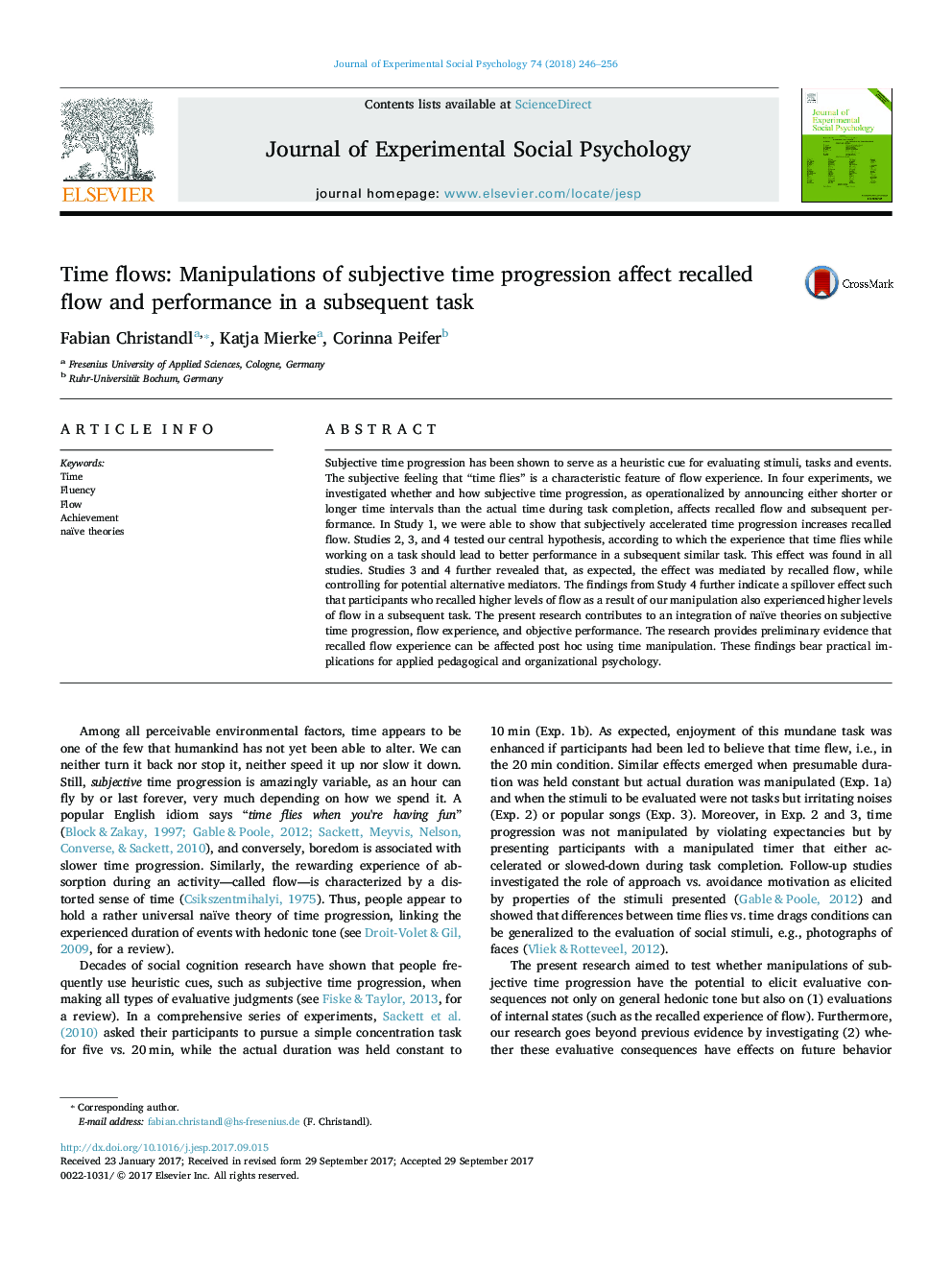| Article ID | Journal | Published Year | Pages | File Type |
|---|---|---|---|---|
| 7324250 | Journal of Experimental Social Psychology | 2018 | 11 Pages |
Abstract
Subjective time progression has been shown to serve as a heuristic cue for evaluating stimuli, tasks and events. The subjective feeling that “time flies” is a characteristic feature of flow experience. In four experiments, we investigated whether and how subjective time progression, as operationalized by announcing either shorter or longer time intervals than the actual time during task completion, affects recalled flow and subsequent performance. In Study 1, we were able to show that subjectively accelerated time progression increases recalled flow. Studies 2, 3, and 4 tested our central hypothesis, according to which the experience that time flies while working on a task should lead to better performance in a subsequent similar task. This effect was found in all studies. Studies 3 and 4 further revealed that, as expected, the effect was mediated by recalled flow, while controlling for potential alternative mediators. The findings from Study 4 further indicate a spillover effect such that participants who recalled higher levels of flow as a result of our manipulation also experienced higher levels of flow in a subsequent task. The present research contributes to an integration of naïve theories on subjective time progression, flow experience, and objective performance. The research provides preliminary evidence that recalled flow experience can be affected post hoc using time manipulation. These findings bear practical implications for applied pedagogical and organizational psychology.
Related Topics
Life Sciences
Neuroscience
Behavioral Neuroscience
Authors
Fabian Christandl, Katja Mierke, Corinna Peifer,
